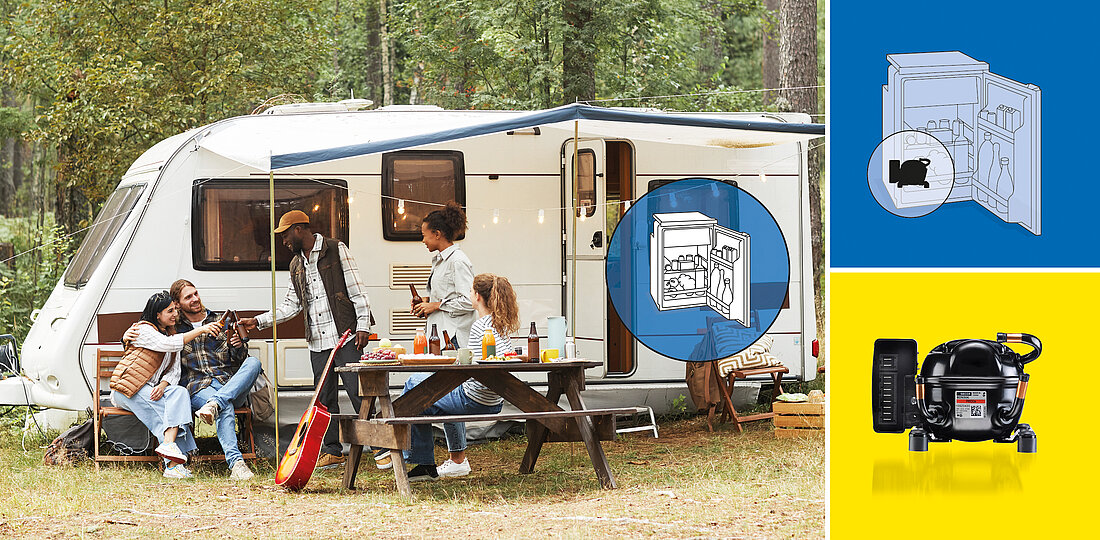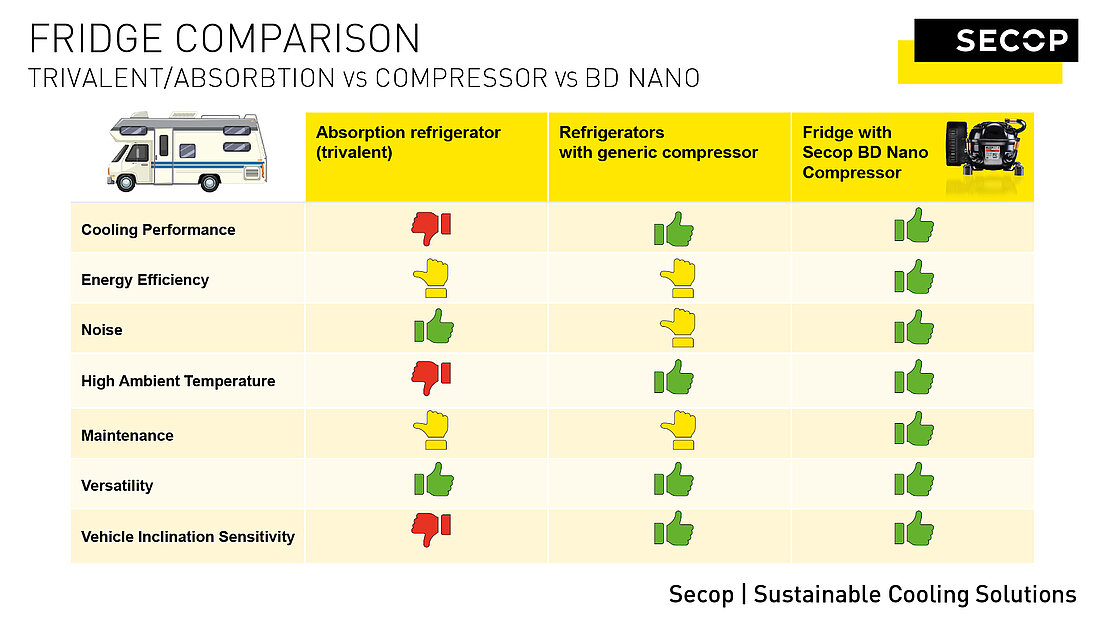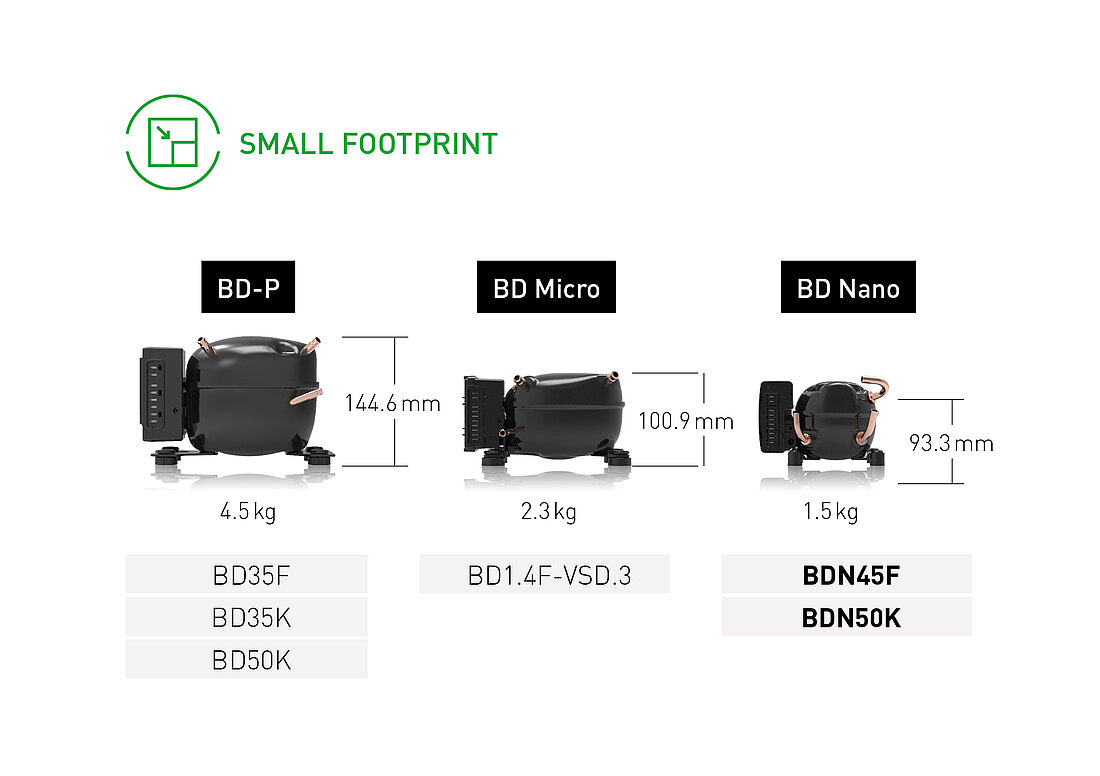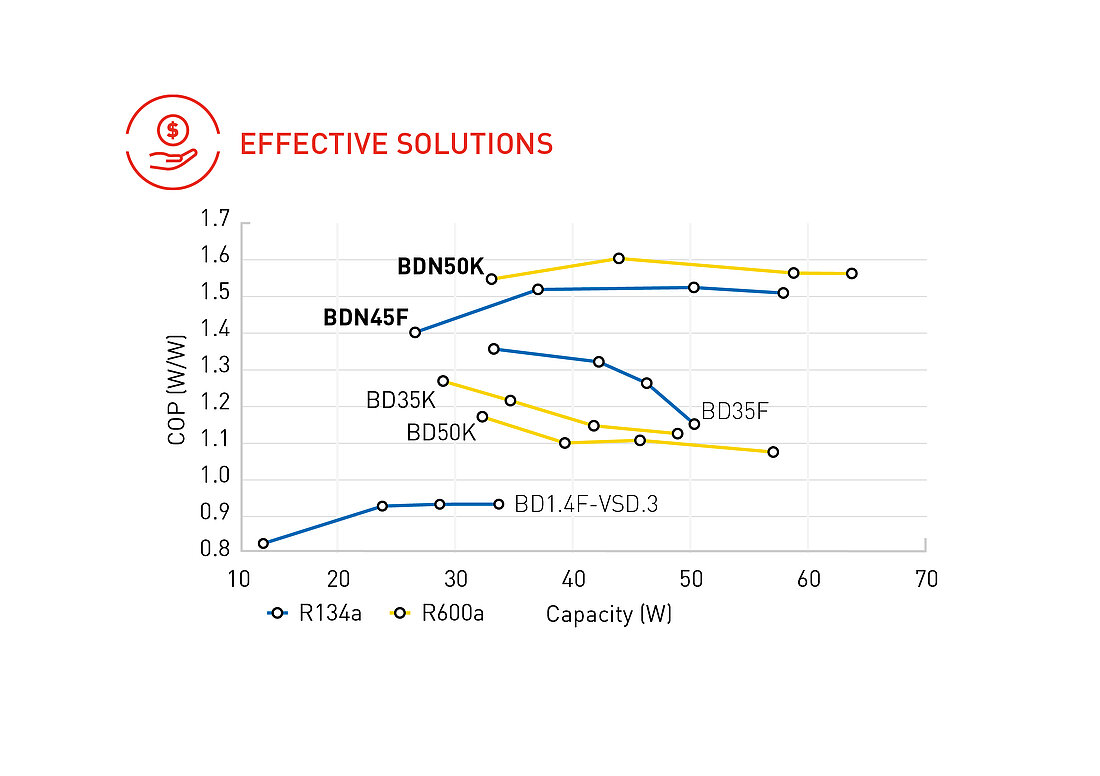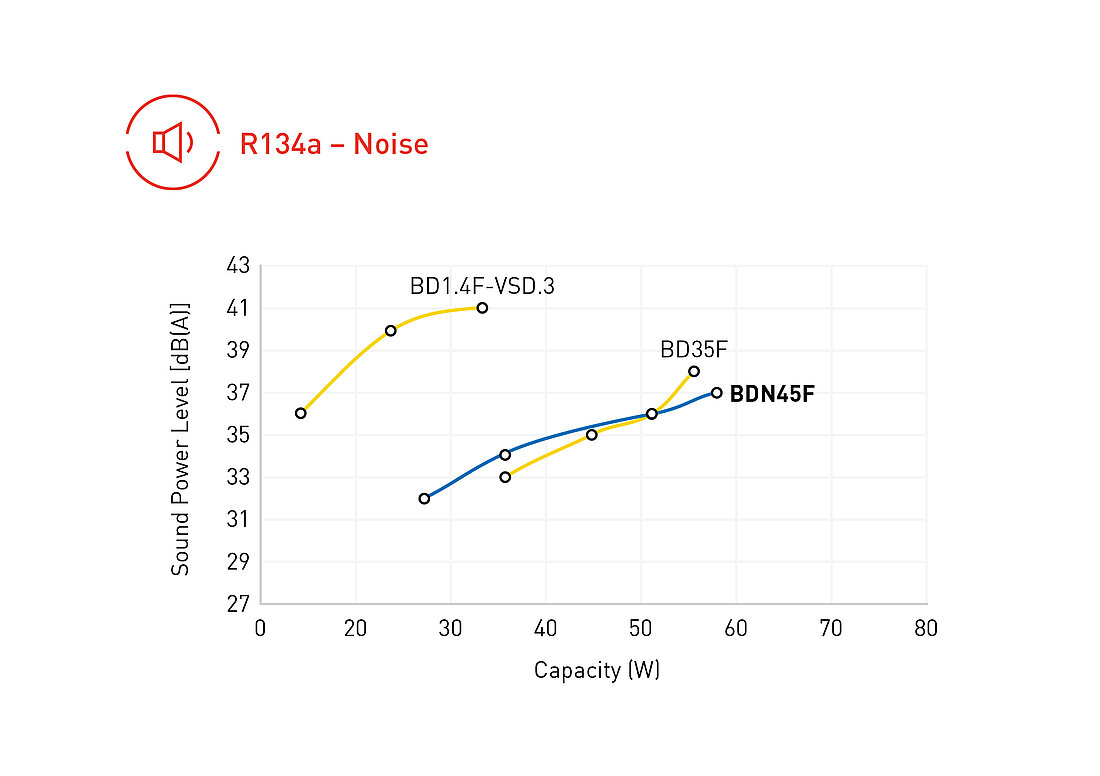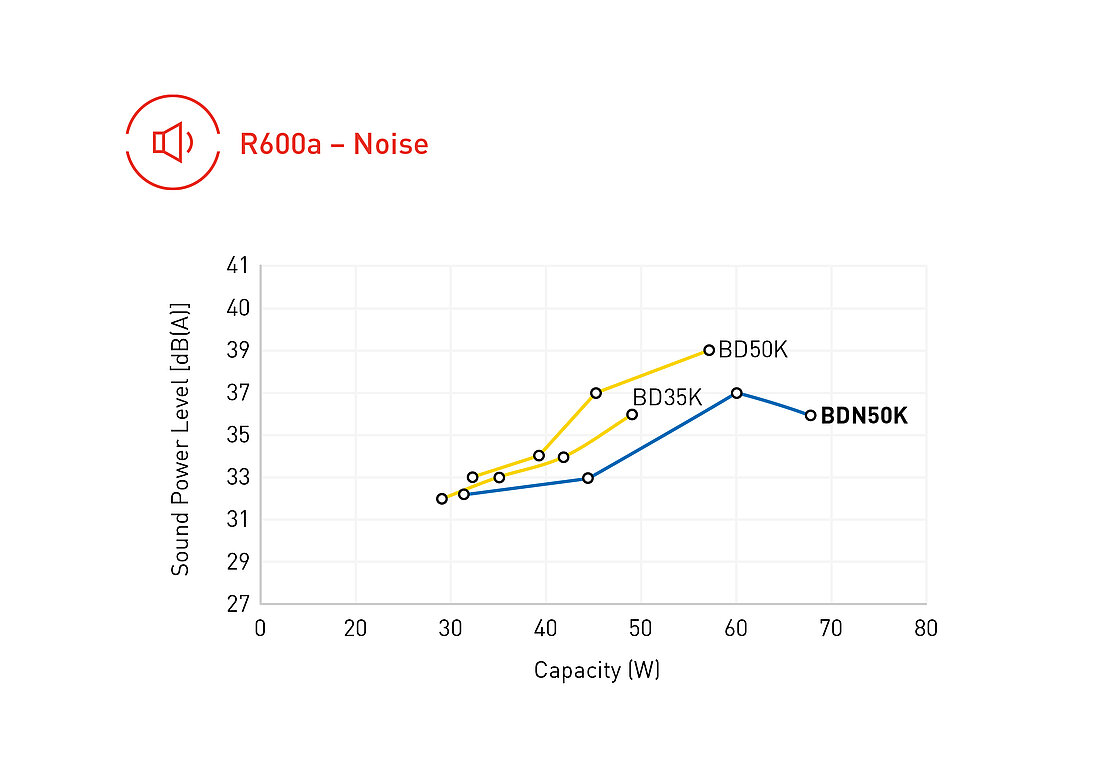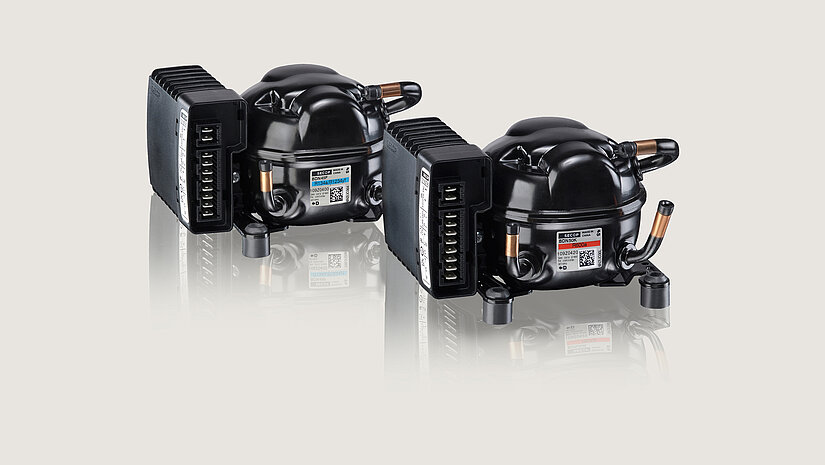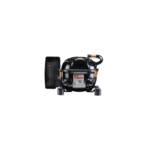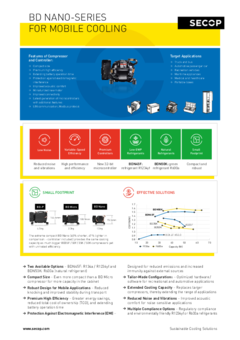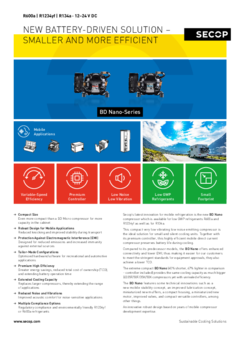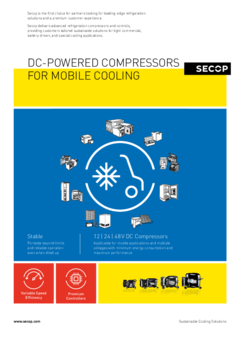Absorption Refrigerator vs. Compressor Refrigerator: Pros and Cons
Let's cut to the chase. Which solution is the best: an absorption/trivalent or compressor?
Market experts usually tend to distinguish between the modes of use, which historically could lead to one choice or the other. Those who like to experience life far from civilization and electricity grids have more reasons to choose the trivalent, while those who prefer relaxing at campsites and facilities with an electricity grid connection enjoy the greater comfort of the compressor fridge.
“Today, however, thanks to the technological innovations that are becoming commonplace for those who enjoy life in a motorhome, this reasoning loses relevance. The key issue is related to energy consumption, and today, lithium auxiliary batteries with tools to recharge them using renewable energies provide an efficient and effective means of allowing the compressor fridge to be used away from the mains.”
Let us look in detail at the various points, extending the analysis to all the elements that a motorhome owner might consider.
Cooling Speed and Power
Absorption Refrigerator: It takes many hours for the inside of the refrigerator to cool down, about 8 hours to reach temperatures of around 4°C. This implies activating the system well in advance and having to wait before the fridge can be used.
Compressor Refrigerator: Cooling times can be less than 2 hours for the best performing products.
Energy Efficiency
Absorption Fridges: Their versatility due to the three operating modes is a strong point. However, gas needs to be refilled, and if it runs out, it is a problem. Users must always have a spare cylinder ready, and if it is missing, it must be bought again. When going abroad, the connections may be different.
Compressor Refrigerator: Consumption is a concern for average users, and with generic compressors, it remains a problem. Secop compressors have always been the most efficient on the market. Today, thanks to the BD Nano and its extraordinary efficiency, the problem is greatly reduced. Furthermore, thanks to lithium auxiliary batteries and the possibility of recharging them with renewable sources such as photovoltaic panels, compressor consumption is no longer an issue.
Noise/Quietness
Absorption Fridge: This is another strong point of the trivalent solution; it is not very noisy.
Compressor Fridge: With generic compressors, the compressor hum can be disturbing. Secop compressors and the BD Nano are the quietest on the market. The BD Nano specifically is the quietest, as proven by tests and shown in the graphs at the end of the article. With this solution, users are free to enjoy quiet and relaxing moments during your vacation.
Performance in High Temperatures
Absorption Fridge: This is among the sore points of these fridges. With high outside temperatures (30-35°C/86°-95°F), the refrigerator cools but with a delta temperature of -20°C/68°F versus the ambient temperature. This is why butter in an absorption fridge melts; in a compressor fridge, it doesn't. You risk compromising and throwing away food that suffers most from the heat while drinks remain hot. These temperatures are found today even in northern Europe.
Compressor Fridge: It works like the one at home, without compromise. Fridges with the BD Nano maintain stable temperatures perfectly, even reaching -18°C/0°F with outside temperatures above 35°C/95°F, allowing you to always enjoy fresh food and cool drinks.
Maintenance
Absorption Refrigerator: Maintenance is more complex, requiring experienced refrigeration specialists capable of fixing this more complex system than the classic circuit with the compressor. For example, the burner needs to be cleaned regularly, and the chimney needs to be flushed with compressed air. In addition, the gas cylinder connection can change depending on the country, increasing the complexity of managing this type of refrigerator.
Compressor Refrigerator: Since the circuit is the same as a domestic refrigerator, it does not require specific skills. Any refrigerator technician can control and fix it in case of a fault, simplifying life for users and reducing costs.
Versatility
Absorption Refrigerator: Thanks to the three alternatives for triggering the refrigeration cycle, this was definitely an advantage of the trivalent before the spread of lithium batteries and tools such as portable photovoltaic panels for recharging them far from the power grid.
Compressor Fridge: With today's tools, it is possible to recharge a battery in various ways and relatively quickly (photovoltaic panels, with the motorhome engine). If, in addition, lithium batteries are used and the low consumption of Secop compressors and the BD Nano are considered, then the problem is scaled down and easily manageable even when camping off the beaten track.
Vehicle Positioning
Absorption Fridge: An inclination of more than 2.5° should be avoided, and it is better not to expose the side of the vehicle with the fridge to the sun.
Compressor Fridge: With the compressor fridge, the position of the vehicle is irrelevant for its functionality – you have one less thing to think about.
